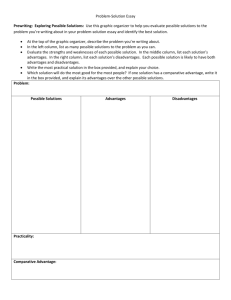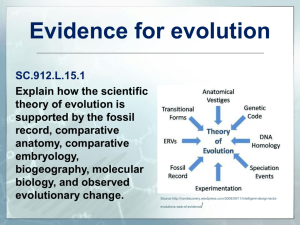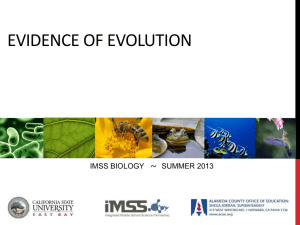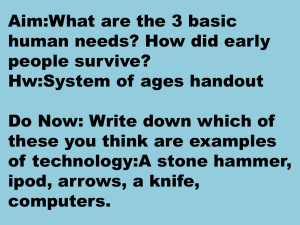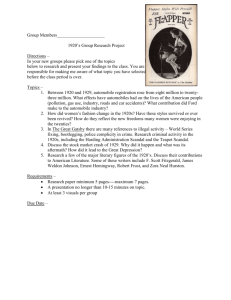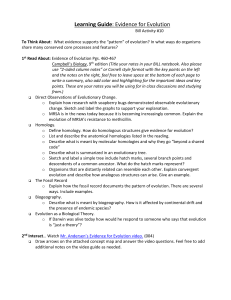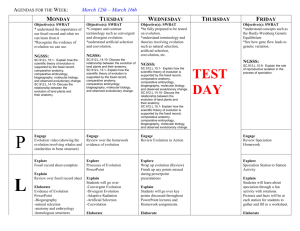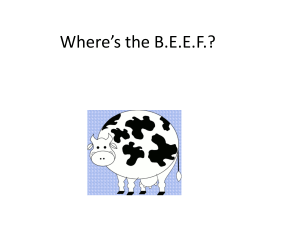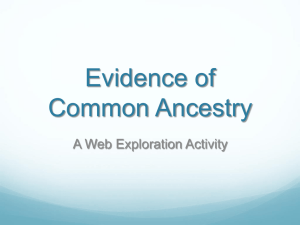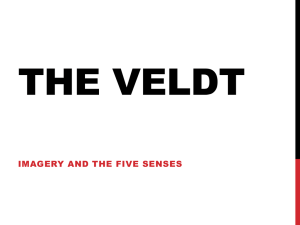File - Science Math Master
advertisement
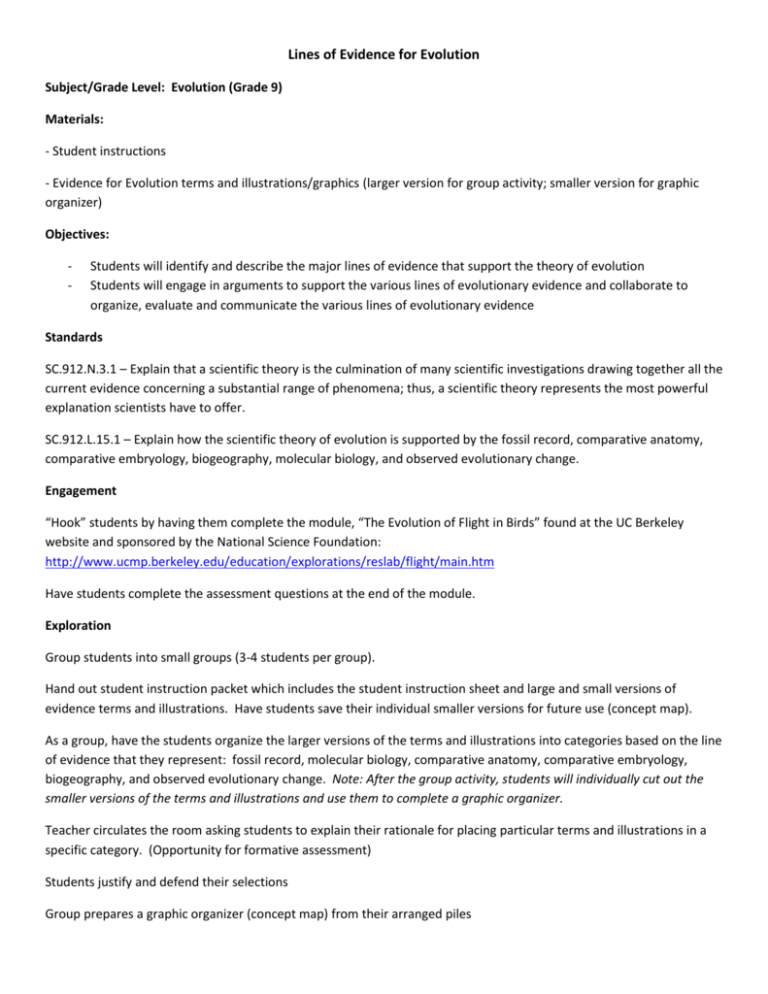
Lines of Evidence for Evolution Subject/Grade Level: Evolution (Grade 9) Materials: - Student instructions - Evidence for Evolution terms and illustrations/graphics (larger version for group activity; smaller version for graphic organizer) Objectives: - Students will identify and describe the major lines of evidence that support the theory of evolution Students will engage in arguments to support the various lines of evolutionary evidence and collaborate to organize, evaluate and communicate the various lines of evolutionary evidence Standards SC.912.N.3.1 – Explain that a scientific theory is the culmination of many scientific investigations drawing together all the current evidence concerning a substantial range of phenomena; thus, a scientific theory represents the most powerful explanation scientists have to offer. SC.912.L.15.1 – Explain how the scientific theory of evolution is supported by the fossil record, comparative anatomy, comparative embryology, biogeography, molecular biology, and observed evolutionary change. Engagement “Hook” students by having them complete the module, “The Evolution of Flight in Birds” found at the UC Berkeley website and sponsored by the National Science Foundation: http://www.ucmp.berkeley.edu/education/explorations/reslab/flight/main.htm Have students complete the assessment questions at the end of the module. Exploration Group students into small groups (3-4 students per group). Hand out student instruction packet which includes the student instruction sheet and large and small versions of evidence terms and illustrations. Have students save their individual smaller versions for future use (concept map). As a group, have the students organize the larger versions of the terms and illustrations into categories based on the line of evidence that they represent: fossil record, molecular biology, comparative anatomy, comparative embryology, biogeography, and observed evolutionary change. Note: After the group activity, students will individually cut out the smaller versions of the terms and illustrations and use them to complete a graphic organizer. Teacher circulates the room asking students to explain their rationale for placing particular terms and illustrations in a specific category. (Opportunity for formative assessment) Students justify and defend their selections Group prepares a graphic organizer (concept map) from their arranged piles Follow on: Each group could prepare a power point slide depicting their concept map. Groups could then present their finished product to the class for class discussion. Explanation This is a review activity that should be accomplished after the key terms have been defined and the lines of evidence have been discussed. Students may have already completed a directed note taking activity using a table similar to the one below: Lines of Evidence in Support of the Theory of Evolution Notes Fossil Record Molecular Data Comparative Anatomy Comparative Embryology Bio geography Observed Change Elaboration Students create a graphic organizer using the smaller versions of the terms and illustrations included in their student packet. Teachers may also choose to have the students review the material found at: http://evolution.berkeley.edu/evolibrary/article/lines_01 Evaluation In addition to the formative assessment during student activity engagement, teachers should evaluate for comprehension of the assessed standards utilizing the CER Rubric below prepared for each line of evidence: Question: How does _______________________(the fossil record, molecular data, etc.) support the theory of evolution? Claim: The ____________ supports the theory of evolution by ________________________ Evidence Reasoning Additional Resources: Weblab to explore the many lines of evidence scientists use to reconstruct the evolutionary histories of organisms. http://www2.edc.org/weblabs/exploringevolution/evolution.swf Article: Twelve Lines of Evidence for the Evolution of Humans & other Primates - Martin Nickels, Anthropology Program, Illinois State University, ENSI Co-Director. http://www.indiana.edu/~ensiweb/nick.he.html
